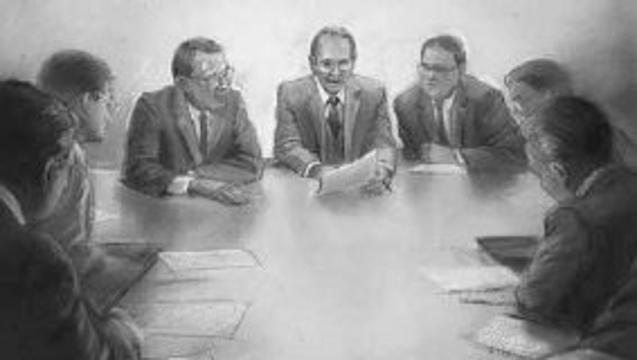Question
Dear Gramps,
I too enjoy your column, and I don’t know that I have a question as much as I am looking for information to present to our youth. I have been asked to talk to our young women and young men about “callings,” accepting and following through with our stewardships. I have only been in this ward for three years, but it seems that many members turn down the callings they are asked to do. It has been difficult to keep our YW/YM, Primary, Elders Quorum, etc. staffed. Our Regional Representative told us there was a “spiritual apathy” in our area, and I think this is part of it. I know how challenging callings can be. Balancing our families, work and being a “Mormon” is very demanding. Ours is not an easy religion, and sometime the “stretch” hurts. Also, sometimes all that we are asked to do seems so overwhelming, but there are blessings that come! Do you have any suggestions on how I can make this presentation? Do you have any references I can use?
Mary, from Wyoming
Answer
Dear Mary,
I am sure that, being close the situation that you are addressing, you are in much better position than I am to develop a specific presentation. As you go through the normal preparation procedures-study, prayer, reference to the scriptures, and fasting if you feel that the occasion demands it-you will receive the inspiration of Heaven to say those things that are needed to be said. And those who are worthy to receive the influence of the Holy Spirit will hear what the Father wants them to know from the things that he inspires you to say.
If there is a spiritual apathy in your area, as has been suggested, you are not alone. I imagine that it exists in varying degrees everywhere. Concerning the Ward in which you live, the status quo, whatever it is, is very difficult to change. Organizations, such as Wards, have their own personalities, just like people do. And it is an interesting phenomenon, that although the make-up of the Ward changes over time, with people coming and going, the personality of the Ward tends to persist in spite of the change of make-up in membership. The reason for this is that when new people come into the Ward, or into any organization, they are tacitly expected to behave according to the existing social norm. If they perform differently they are looked upon with suspicion, and receive significant negative feedback that discourages the continuation of the perceived aberrant behavior. On the other hand, if they perform in the expected manner, i.e., according to the status quo, they receive much positive feedback; and thus the particular personality of the organization tends to perpetuate itself.
Although that influence exists in all organizations, individual people respond to it in individual ways. Even this response may be classified and categorized. In any statistically significant group that make up an organization, be it a Ward, a business office, or a social club, the population may be divided into six categories, as follows:
-The innovators, about 4% of the population. The innovators are those who come up with new ideas, and new ways of doing things. They are generally not accepted and are looked on with suspicion by the rest of the population.
-The early adaptors, about 12% of the population. The early adaptors recognize a good idea when they see one and are ready and willing to try it out.
-The early majority, about 34% of the population. When the early majority see the early adaptors adopt a new procedure and it appears successful, they are ready to join in.
-The late majority, about 34% of the population. The late majority will not adopt a new procedure until the procedure has a popular appeal and appears to be running well.
-The late adaptors, about 12% of the population. The late adaptors will not participate in the new procedure until it becomes well established and becomes the norm of the organization.
-The die hards, about 4% of the population. The die hards will not accept the new procedure under any circumstances.
So, changing the degree of apathy in your ward is not an easy thing. It apparently can only be accomplished by the strength of powerful example. The behavioral make-up of people is so complex and deep rooted, that preaching about the subject from the pulpit has very little immediate effect.
Gramps







